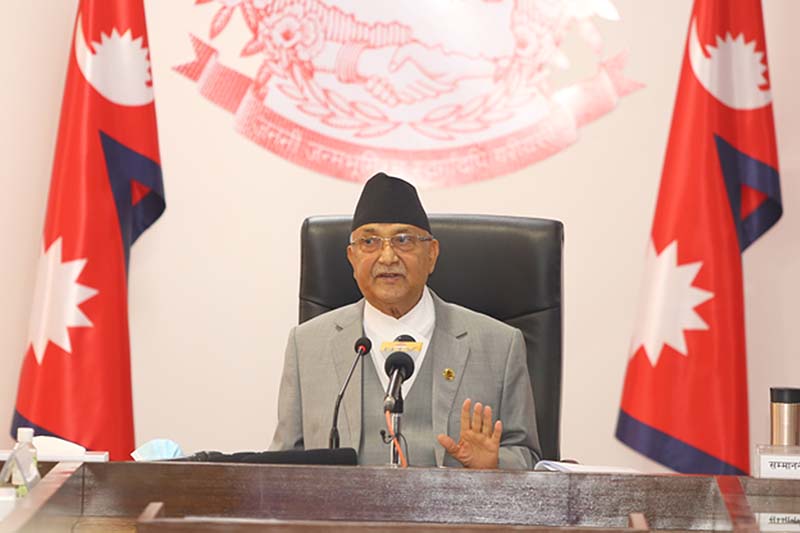

The Standing Committee (SC) meeting of the CPN (UML) has started at the Prime Minister’s official residence in Baluwatar. The meeting was called by Prime Minister KP Sharma Oli to hold discussions regarding the formation of a new government.
The meeting will also hold talks to seek ways to resolve the internal disputes that have been plaguing the party.
The CPN UML Standing Committee meeting being held at the moment holds significance as the deadline given by President Bidhya Devi Bhandari to form a new government by 9 pm today. The president had made this call on Monday (May 10) after PM Oli lost the vote of confidence in the House of Representatives (HoR).
President Bhandari had issued a call asking a member of parliament to claim the premiership with the support of two or more parties as per Article 76 (2) of the Constitution of Nepal. Subsequently, the Nepali Congress has been making efforts to form a government with support from the Madhav Kumar Nepal faction of CPN UML, CPN (Maoist Centre), and the Janata Samajwadi Party (JSP).
However, though Chairperson of JSP, Upendra Yadav, is willing to forge an alliance with Nepali Congress to form a new government another Chairperson of JSP, Mahanta Thakur, has issued a statement that the party will not support the alliance.
The intraparty feud within the CPN UML has taken a new twist after 28 UML parliamentarians including party senior leader Nepal remained absent in the HoR meeting on May 10.
The UML leadership is considering serious talks with the disgruntled Nepal-Khanal faction as some lawmakers of the group are preparing to resign to support the opposition parties in the formation of a new government.
If a new government cannot be formed today as per Article 76 (2) then there are two options that can be utilised to form a government. While speaking to NepalNews, Dr Bhimarjun Acharya, a constitutional expert, mentioned that if a government cannot be formed as per Article 76 (2) then Article 76 (3) of the Constitution will have to be enacted. As per Article (3), the president can appoint the leader of the largest party in the Parliament as the prime minister.
“However, what has to be noted is that the prime minister appointed through Article 76 (3) also has to win the vote of confidence of the House within 30 days of the date of appointment,” he clarified.
If a government cannot be formed through Article 76 (3) of the Constitution then the third option would be to implement Article 76 (5), Acharya informed. “As per Article 76 (5), the president can appoint any member of parliament if the member presents sufficient ground that he or she can win the vote of confidence in the Parliament,” he added.
“But if the prime minister appointed under Article 76 (5) cannot win the vote of confidence within the stipulated time then the president can dissolve the House of Representatives on the recommendation of the prime minister,” Acharya said.
He mentioned then the only option will be for the president to fix a date so that the election to the next House of Representatives can be completed within six months.